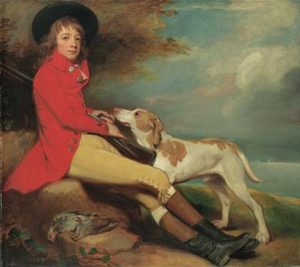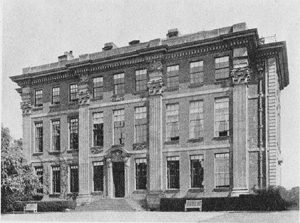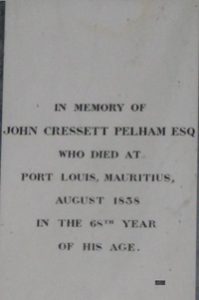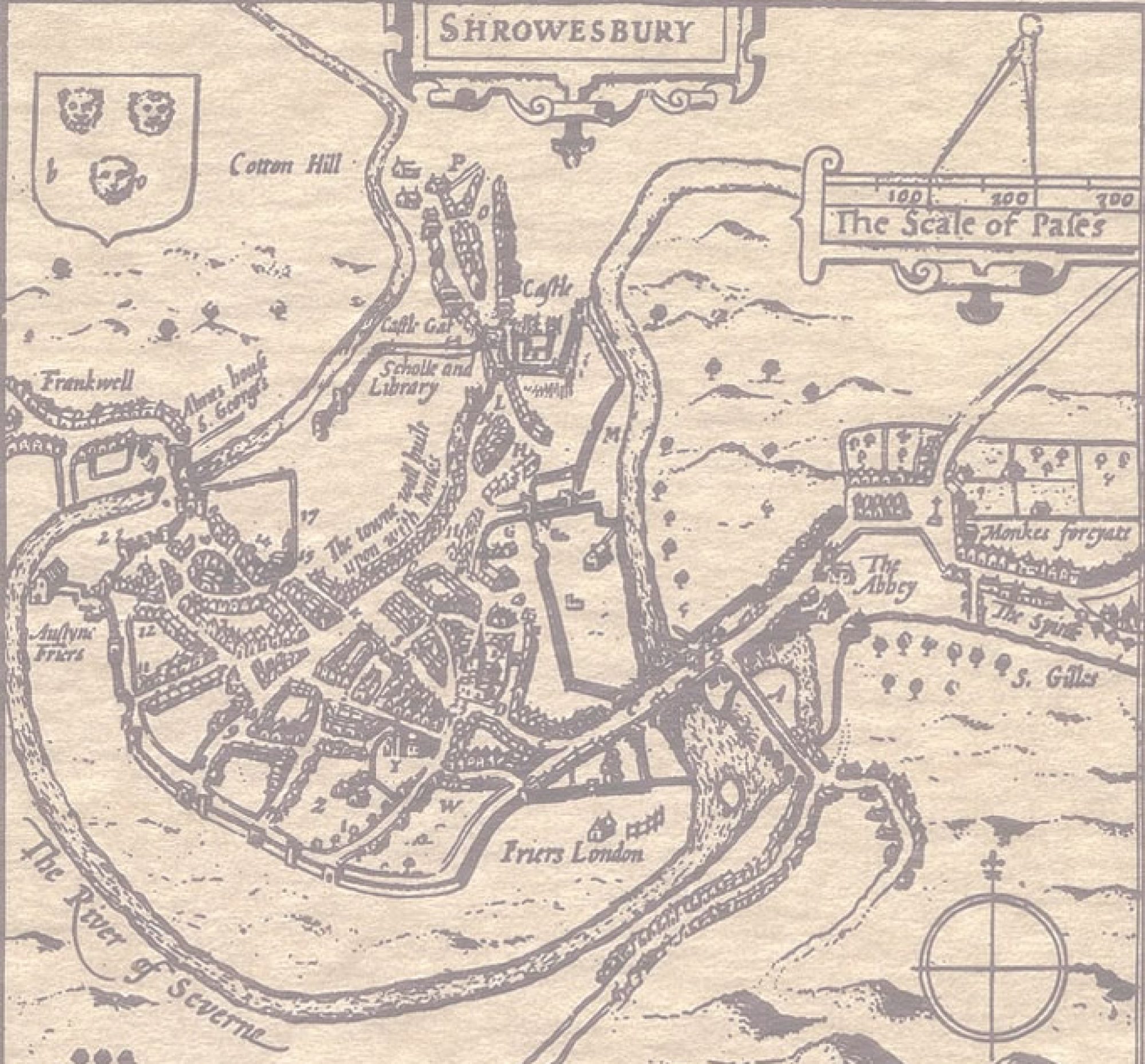
The last article on William Hazledine brought to mind an extraordinary episode in his life. It concerned his dealings with John Cressett Pelham (1771 – 1838), after whom Pelham Road in Upton Magna is named. The Pelham family had estates in both Sussex and at Cound, just off the Shrewsbury to Bridgnorth road between Cross Houses and Cressage. John Cressett Pelham was born in Sussex and was noted at an early age for his eccentricity, generosity, and love of field sports. [footnote 1] He became MP for Lewes in Sussex in 1796, but soon after his ‘eccentricity’ became overt mental illness, and in 1801 a ‘commission of lunacy’ (a bit like ‘sectioning’ under the mental health act today) was taken out against him. However, in time he recovered, and when he succeeded to the family estates after the death of his father in 1803 he moved permanently to Cound Hall.

The exact date of the episode between Hazledine and Pelham is not known, but the Shrewsbury Chronicle reported it as follows, ‘Meeting one day near the Post Office [in Shrewsbury], Mr Pelham told Hazledine that, as he wished to remove Cound Mill nearer to the water which drove it, he would be glad if Hazledine would immediately set about the job. Hazledine, somewhat astonished, said, “Wouldn’t it be better to bring the water nearer the mill than to demolish the building to bring it nearer the water?” “I don’t want your advice,” said Mr Pelham, turning on his heel and walking off. “I don’t want your job,” replied Hazledine, driving his gig towards his residence. And the pair continued shouting, “I don’t want your advice,” and “I don’t want your job,” till they were out of each other’s hearing. Eighteen months thereafter, not a word having passed between them on the subject during all that time, Mr Pelham walked into Mr Hazledine’s office, and briefly asked him to “do the job at Cound,” which Hazledine answered with a nod. And the work, involving an expenditure of many hundred pounds, was completed without another word passing between them!’ [footnote 2]

In 1822 he was elected as one of the MPs for Shropshire, having spent £20,000 (over £800,000 at today’s prices) on the election. It was said that his acceptance speech was ‘so ambiguous that the most ingenious cannot discover from anything contained in it what are his principles, or whether he has any principles at all.’ Such ambiguities characterised his time in Parliament. He started supporting the Whig party, then became uncommitted, and finally was a rather lukewarm Tory. He was very active in Parliament, but often meddled in affairs about which he knew little, much to the annoyance of party managers. Often his speeches were inaudible as well as being incomprehensible, but he did have a number of principles that he stuck to all his life. One was the ongoing campaign to free all the slaves in the Empire, since William Wilberforce’s act of 1807 had only abolished the slave trade, not slavery itself. In 1827 Pelham went to the West Indies to see the situation for himself, and came away convinced ‘that there were more Christians among these blacks than in this metropolis [London].’ Sentiments such as these encouraged Parliament to outlaw slavery in the Empire in 1834. [footnote 3]
Pelham lost his Shropshire seat in 1832, but was re-elected for Shrewsbury in 1835. After losing this seat also, for some reason he decided to sail for Mauritius, where he died in 1838. A contemporary summarised him thus, ‘Cressett Pelham is noted for his eccentricity, to make use of a very mild word to describe his strange conduct in public and private life… But Mr Pelham not infrequently does very kind actions, and occasionally, like all other odd fellows, makes shrewd remarks. He is, besides, master of his own estate, has no family, and can live on £50 per annum.’
Footnotes
[1]History of Parliament website – http://www.historyofparliamentonline.org/volume/1820-1832/member/cressett-pelham-john-1769-1838, accessed 3.4.2012. All quotations are from this source.
[2]Shrewsbury Chronicle 6.11.1840
[3]Anti-Slavery Society website, http://www.anti-slaverysociety.addr.com/huk-1833act.htm, accessed 3.4.2012
